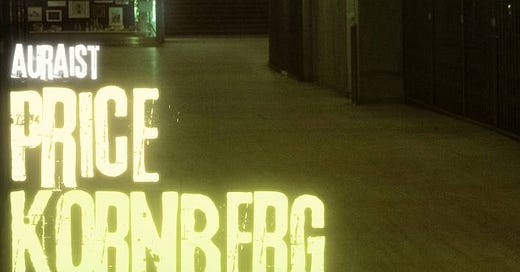Welcome to the 1000 new subscribers who’ve signed up this past month for our picks of the best-written works of literary and speculative fiction and nonfiction, and masterclasses on prose style by th…
Keep reading with a 7-day free trial
Subscribe to Auraist: picking the best-written books to keep reading this post and get 7 days of free access to the full post archives.




